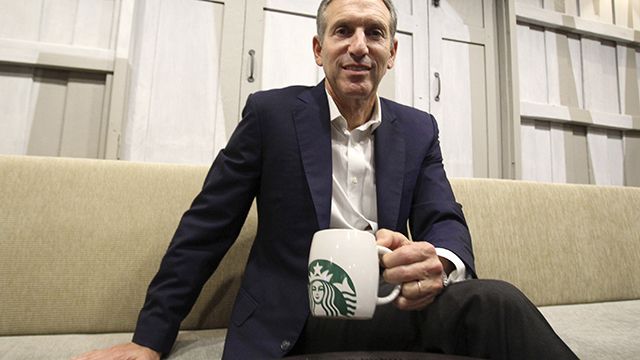
If you’re the CEO of a major company today, you make, on average, about 273 times more than the average worker. That’s according to a recent analysis by the Economic Policy Institute (EPI) of the CEO-to-worker pay ratio at top 350 firms. The average pay, EPI found, was $14.1 million in 2012, up 12.7 percent from 2011.
That’s a big change from a half-century ago. In 1965, the CEO-to-worker pay ratio was about 20-to-1, but it grew over the next three decades, and that growth picked up speed in the ’90s. It peaked in 2000 before the early 2000s recession, with a CEO-to-worker pay ratio of 383.4-to-1. It hit a lesser peak again in 2007, before the Great Recession, with a ratio of 351.3-to-1. During the recovery, CEO pay has been climbing upward once more. At the same time, for most Americans, wages have remained stagnant at best.
A separate analysis of a smaller group of CEOs — the top 200 chief executives at public companies with at least $1 billion in revenue — found a median pay package of $15.1 million, up 16 percent from 2011. That study, conducted by Equilar Inc., an executive compensation analysis firm, for The New York Times, found that the 200 CEOs in question also received “boatloads” of stock and options awards equal to an additional 60 percent of their pay. Gretchen Morgenson writes, “[s]o much for the idea that shareholders were finally getting through to corporate boards on the topic of reining in pay.”
At least the stock market returns generated by these companies last year exceeded the pay increases awarded to their chiefs. Still, at 19 percent in 2012, that median return was only three percentage points higher than the pay raise.
In other words, it’s still good to be king.
When Dodd-Frank was being formulated to rein in the excesses of the years before the 2007 crash, Senator Robert Menendez (D-N.J.) added a provision to the bill requiring that companies disclose their CEO-to-worker pay ratio in every SEC filing. The hope was that making this information public would encourage shareholders to keep executive pay in check.
But nearly three years after Dodd-Frank was signed into law, the Securities and Exchange Commission has yet to implement rules for pay ratio disclosure. Companies have long complained that it would be costly to calculate and accurately report their median worker’s pay, and have lobbied rigorously against it. Rep. Bill Huizenga (R-Mich.) introduced a bill in March, the Burdensome Data Collection Relief Act, stripping the provision from the law, with corporate complaints as justification. The House Committee on Financial Services advanced Huizenga’s bill to the House floor last month.
Regardless of whether the data is ever collected, stockholders may not care anyway. As the National Bureau for Economic Research noted in 2005, when executive compensation was climbing toward its most recent, pre-financial crisis peak, shareholders don’t complain about CEO pay when the stock market is doing well. “During a period of market booms, the demand for executives goes up and firms need to pay more in order to retain and hire executives,” the report’s authors wrote, citing earlier research. Later in the same report, they write, “a rising stock market, which affects even the market caps of poorly performing companies, provides most firms with a convenient justification for substantial pay increases. Furthermore, investors and other outsiders are generally less bothered by excessive and distorted pay arrangements when markets are rising rapidly.” The Atlantic’s Derek Thompson paraphrases: bull markets “make shareholders less likely to kick and shout when executives pull down one-year pay packages many hundreds of times more than their average workers. In other words, bull markets make CEOs fabulously wealthy, and they make shareholders indifferent to their fabulous wealth.”
So as corporate profits grow, so will CEO salaries, even as, for most Americans, wages stagnate or fall. The recovery continues for some, but not most, Americans.


